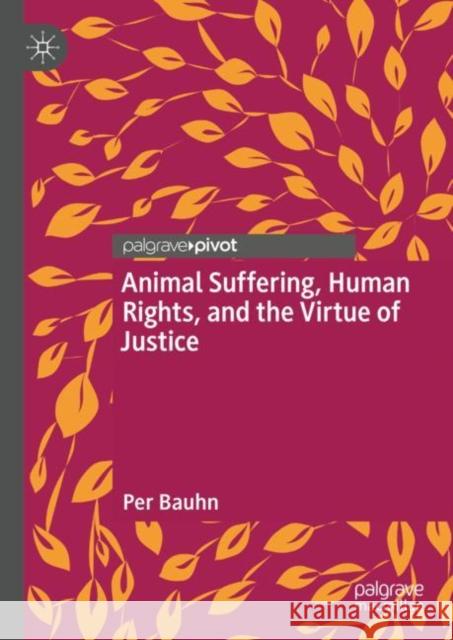Animal Suffering, Human Rights, and the Virtue of Justice » książka
Animal Suffering, Human Rights, and the Virtue of Justice
ISBN-13: 9783031270475 / Angielski / Twarda / 2023
In this book, Per Bauhn does three things. First, he outlines some aspects of contemporary philosophical views on animals and morality, including the criticism of speciesism and the animal rights argument. Second, he criticizes these views, arguing that we cannot escape a speciesist perspective on morality, and that there are no good reasons why we should believe that non-human animals have moral rights. Third, he argues that cruelty against non-human animals is morally wrong, but not because animal rights are being violated but because human agents who inflict cruelty on non-human animals are failing their duty to develop in themselves the virtue of justice. This latter argument is reminiscent of Immanuel Kant’s idea that we have only indirect duties towards animals, but unlike that idea, Bauhn's argument does not depend on any causal hypothesis that humans who are cruel to animals are likely to be cruel also to their fellow humans. Instead, Bauhn's argument relies on the fact that being cruel to non-human animals and other innocent beings is conceptually and logically inconsistent with the virtue of justice – a virtue which agents are rationally required to develop in themselves.
In this book, Per Bauhn does three things. First, he outlines some aspects of contemporary philosophical views on animals and morality, including the criticism of speciesism and the animal rights argument. Second, he criticizes these views, arguing that we cannot escape a speciesist perspective on morality, and that there are no good reasons why we should believe that non-human animals have moral rights. Third, he argues that cruelty against non-human animals is morally wrong, but not because animal rights are being violated but because human agents who inflict cruelty on non-human animals are failing their duty to develop in themselves the virtue of justice. This latter argument is reminiscent of Immanuel Kant’s idea that we have only indirect duties towards animals, but unlike that idea, Bauhn's argument does not depend on any causal hypothesis that humans who are cruel to animals are likely to be cruel also to their fellow humans. Instead, Bauhn's argument relies on the fact that being cruel to non-human animals and other innocent beings is conceptually and logically inconsistent with the virtue of justice – a virtue which agents are rationally required to develop in themselves.











